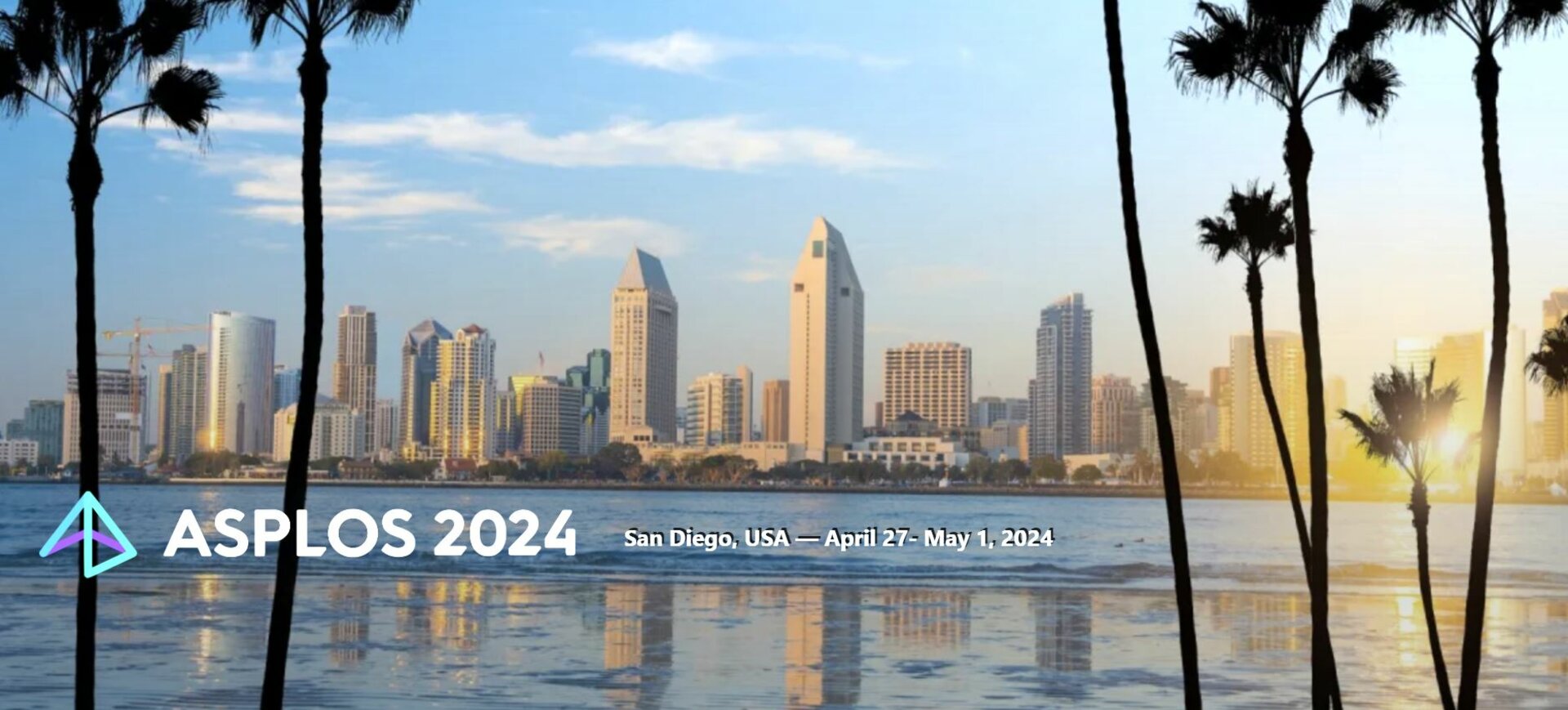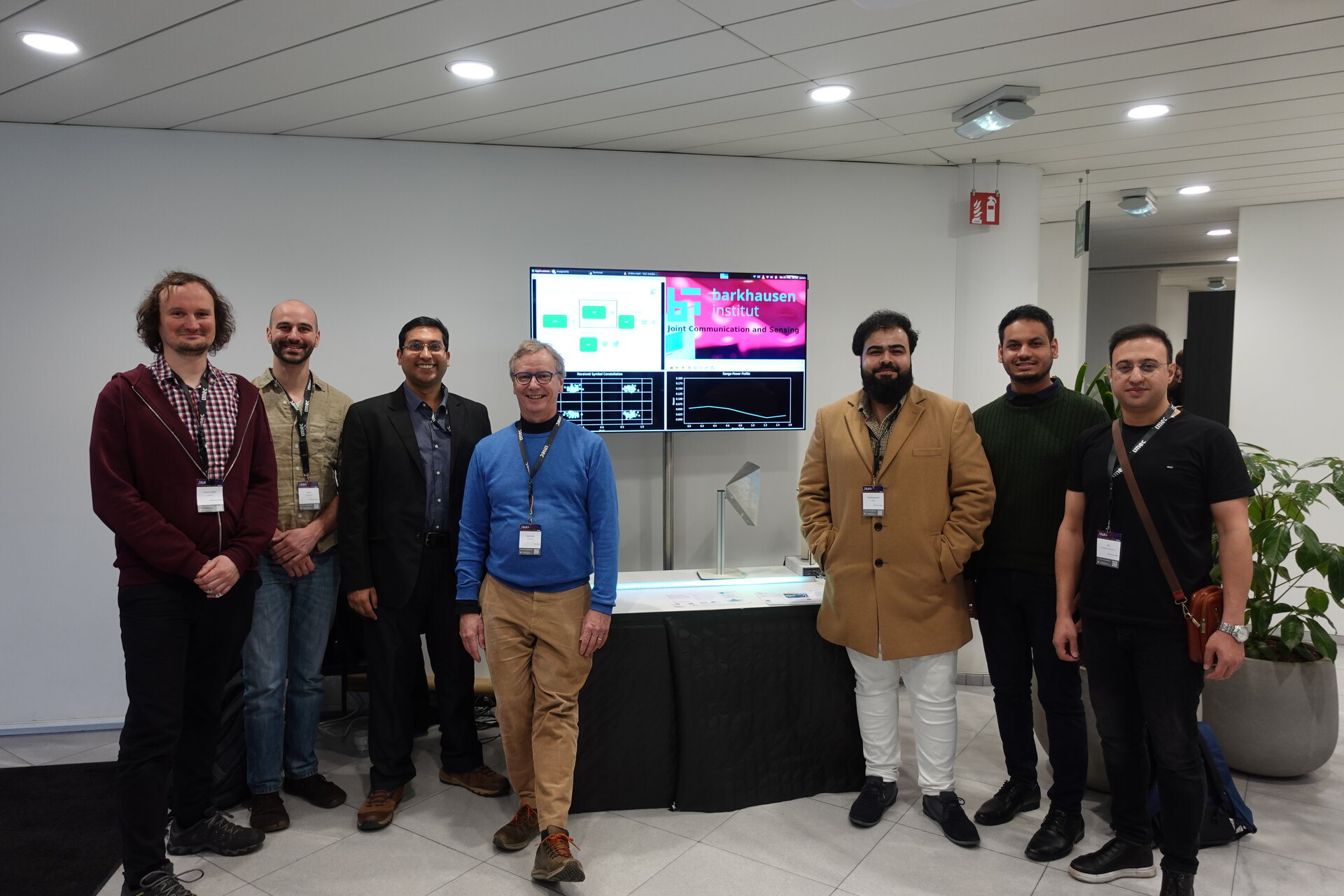International Conferences 2024: Showcasing the research of the BI
International conferences are one of the best ways for making the Barkhausen Institut’s research on trustworthiness in the field of information and communication technology visible to the global scientific community. By presenting their papers and projects, our researchers receive expert feedback and engage in professional discussions with peers. These events also provide excellent networking opportunities, helping researchers to expand their connections and collaborations within their fields.
At the BI, our researchers participate in numerous conferences each year to share their latest findings and contribute to the open exchange of knowledge. Among the most significant conferences for our teams are the international the ASPLOS conference, the IEEE Joint Communications & Sensing Symposium, and the EuCNC.

The ASPLOS (Architectural Support for Programming Languages and Operating Systems) conference is a leading forum for multidisciplinary research in computer systems, covering both hardware and software. Here, we presented a paper at an associated workshop titled “Towards Disaggregation-Native Data Streaming between Devices,” discussing the integration of accelerator hardware in disaggregated data centers. Disaggregation is a trend where you integrate computing resources such as accelerator hardware into your programs via a fast network in the data center.

At the 4th IEEE Joint Communications & Sensing Symposium, there was a focus on the different system and implementation aspects from both the radar and communications research communities. Our researchers participated with two paper presentations and a tutorial. The first presentation, titled “Circularly Polarized Dual Antenna with Crescent Axed Sporadic Meander Traces Isolated by Shorting Pins and Defected Ground for Wi-Fi Sensing,” introduces an innovative antenna design for integrated sensing and communication in the Wi-Fi 6 GHz spectrum. The second paper, “Enhancing Frequency Hopping Security in ISAC Systems: A Physical Layer Security Approach,” explores security risks in Frequency Hopping (FH) signals, particularly focusing on privacy concerns. Therefore, it presents a new method to make FH signals more secure and trustworthy on the physical layer. Additionally, our team conducted a tutorial on Joint and Radio Sensing, highlighting its applications in the upcoming 6G technology.

Finally, our researchers took part in the double conference of the EuCNC (European Conference on Networks and Communications) combined with the 6G Summit. This major event covers all aspects of telecommunications, from 5G deployment and mobile IoT (Internet of Things) to 6G and future communication systems. Our teams used this platform to represent their ongoing projects and connect with experts in the field.
A selection of other conferences we attended in 2024 so far:
- Global Information Infrastructure and Networking Symposium (GIIS) in Dubai, United Arab Emirates
- German Microwave Conference (GeMiC) in Duisburg, Germany
- European Conference on Antennas and Propagation (EuCAP) in Glasgow, Scotland
- BeWISE – Women in Science and Engineering in Dresden, Germany
- IEEE Real-Time and Embedded Technology and Applications Symposium (RTAS) in HongKong, China
- 6G Summit in Dresden, Germany
- IEEE International Conference on Communications (ICC) in Denver, USA
- Silicon Saxony Day in Dresden, Germany
- 6G Conference in Berlin, Germany
- International Conference on Control, Decision and Information Technologies (CoDIT) in Valetta, Malta
- International SoC Design Conference (ISOCC) in Sapporo, Japan
